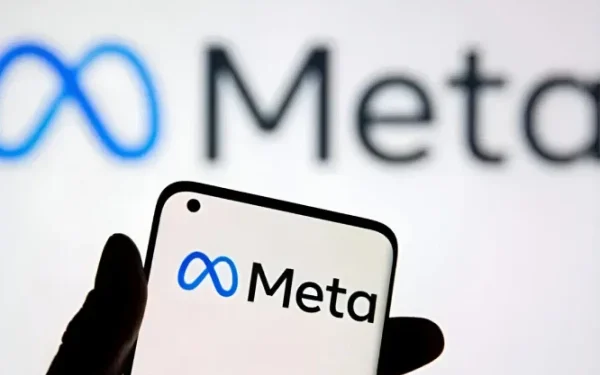Introduction: Meta Eyes Acquisition to Strengthen Voice AI Capabilities
In a rapidly evolving artificial intelligence landscape, tech giant Meta (formerly Facebook) is reportedly in negotiations to acquire PlayAI, a rising startup in the field of voice cloning and AI voice synthesis. According to a Bloomberg report citing unnamed sources, Meta is exploring the acquisition of this innovative platform to enhance its growing suite of AI-powered tools and reinforce its position in the competitive AI arms race.
If the deal materializes, it would represent a significant expansion of Meta’s AI ambitions—specifically in the domain of generative voice technology, which is quickly gaining prominence for its applications in customer service, content creation, gaming, virtual assistants, and more.
What is PlayAI? A Look at the Voice Cloning Startup
PlayAI is a voice-imitating AI platform that allows users to recreate or generate human-like voices using advanced machine learning algorithms. The company’s technology can simulate a wide range of vocal tones, accents, and speaking styles. This enables developers and businesses to use synthetic voices in a variety of contexts, from automated customer support to virtual influencers, podcasts, and even dubbing content across languages.
Since its inception, PlayAI has raised approximately $23.5 million in venture capital funding. Notable backers include 500 Startups, Kindred Ventures, Race Capital, 500 Global, and Soma Capital, signaling broad investor confidence in the startup’s potential and the growing market for voice AI.
Meta’s Strategic Shift Toward Multi-Modal AI Tools
Meta has made it no secret that it is heavily investing in artificial intelligence, particularly generative AI, to bolster its position in social media, the metaverse, and enterprise technology. The company has already introduced Meta AI, an assistant that integrates AI-powered chat, video editing, and content creation features across its platforms—Facebook, Instagram, and WhatsApp.
By acquiring PlayAI, Meta could integrate realistic voice synthesis into its ecosystem, enhancing services such as:
- Chatbots with voice interactivity
- AI-generated content for Reels and Stories
- Voiceovers for virtual reality avatars in the metaverse
- Automated customer service for businesses using WhatsApp Business or Messenger
The acquisition would allow Meta to compete directly with other tech giants—like Google, Amazon, and OpenAI—who are also integrating text-to-speech and voice cloning technologies into their products.
A Step Toward Personalized and Immersive AI Interactions
Voice cloning technology adds a layer of emotional realism that text-based chatbots lack. With PlayAI’s voice engine, Meta could offer users highly personalized digital assistants that sound like real people—possibly even like themselves or someone they choose.
This opens up possibilities for:
- Custom AI companions with selected voices
- Narration of user-generated content
- Virtual influencers and avatars in the metaverse
- Interactive voice-based games and educational tools
Such capabilities can greatly enhance user engagement and immersion, key factors in Meta’s long-term metaverse strategy.
Voice AI: A Rapidly Growing Frontier in Tech
Voice AI is emerging as one of the most dynamic segments of the AI industry. With advancements in deep learning, neural text-to-speech models, and voice morphing, synthetic voices have become nearly indistinguishable from human speech.
Major players are already making strides:
- OpenAI’s Voice Engine (still in private testing) can clone voices with just a few seconds of audio.
- ElevenLabs offers ultra-realistic text-to-speech voices widely used by content creators and game developers.
- Google DeepMind’s WaveNet has been incorporated into Google Assistant, YouTube, and Maps.
Meta’s potential acquisition of PlayAI suggests the company doesn’t want to be left behind in this crucial domain.
Concerns and Ethical Considerations in Voice Cloning
While voice cloning presents exciting possibilities, it also raises serious ethical, legal, and security concerns:
- Misinformation and deepfakes: Cloned voices can be used to impersonate public figures or spread false information.
- Consent and privacy: Using someone’s voice without permission, even if AI-generated, can be considered a violation of privacy.
- Fraud: AI-generated voices are increasingly being used in scams, such as pretending to be a family member or a company executive.
If Meta does acquire PlayAI, the company will need to implement robust safeguards and transparency protocols, especially in light of past scrutiny over its data privacy practices. Responsible AI deployment will be key to avoiding misuse of voice technologies.
Reactions from Meta and PlayAI
As of now, Meta has declined to comment on the acquisition rumors, and PlayAI has not responded to media inquiries regarding the report. This is typical of high-stakes tech deals, especially during early-stage negotiations.
However, industry insiders suggest that the lack of denial from either party lends credibility to the reports. If confirmed, the deal could be announced officially in the coming months.
AI Acquisitions: Part of Meta’s Broader Investment Strategy
Meta has been actively acquiring or partnering with AI startups to accelerate its technological edge. Recent investments and partnerships include:
- Collaborating with Hugging Face to open-source LLaMA models.
- Introducing Emu, a powerful image generation model.
- Expanding its in-house research through FAIR (Facebook AI Research).
The addition of a cutting-edge voice AI platform like PlayAI fits naturally into this pattern, complementing Meta’s broader ambition to build an AI-powered digital universe.
Market Implications and Competitive Pressure
If Meta successfully acquires PlayAI, it will likely intensify competition among tech giants investing in multi-modal AI—a form of AI that integrates text, image, audio, and video generation capabilities.
Competitors like Microsoft, which has partnered with OpenAI, and Apple, which recently revealed its “Apple Intelligence” initiative, are already exploring similar AI enhancements. Meta’s move could prompt:
- Accelerated innovation across the AI voice sector
- Higher valuations for other voice AI startups
- More M&A (merger and acquisition) activity in the generative AI space
Conclusion: A Bold Move Toward Voice-Enabled AI Ecosystems
Meta’s reported interest in acquiring PlayAI signals a strategic pivot toward voice as a primary mode of human-AI interaction. As the company continues to develop its AI assistant, creative tools, and metaverse ambitions, integrating realistic voice capabilities could redefine how users interact with digital environments.
However, success will depend not only on technological integration but also on building trust, ensuring consent, and preventing misuse. As with all powerful AI tools, how they are deployed—and safeguarded—will ultimately determine their impact.

























